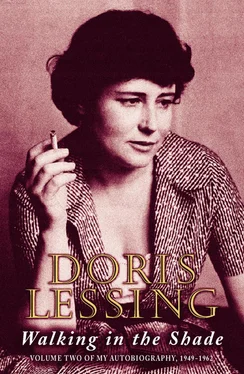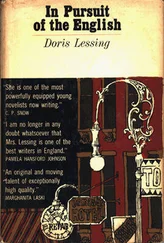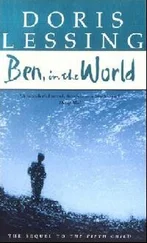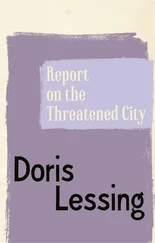I think there couldn’t have been more than ten or so of these Writers’ Group meetings. Discussions about literature did not defer at all to the party line and were critical of ‘socialist realism’. As for me, I was told by the comrades, as a summing-up of my contributions to Party thinking, that I raised questions none of them had thought of before or which had such obvious solutions no one would dream of wasting time on them. My trouble was that I couldn’t see the difference.
And now the Communist Party Writers’ Group put me into a truly ridiculous situation. Montagu Slater and John Sommerfield told me that they had gone to the Annual General Meeting of the Society of Authors. * This, they said, was an authoritarian, undemocratic organization, run by a self-perpetuating oligarchy. No member ever went to an AGM. They had put my name forward to be on the management committee. I was furious, said I had meant it when I told them I hated meetings. I would not go. Too late, they said airily, and after all, I did have to do something as a Party member. I could regard it as my revolutionary duty. They did speak with the sardonic relish for incongruity which I understood so well. I therefore found myself in that charming Chelsea house, at a meeting, to help run the affairs of the Society. They, of course, knew that I was a communist, having been proposed by two well-known communists, and they saw me as a beachhead for an invading force. They expected from me the dishonesty and double-dealing characteristic of the comrades. After all, they could hardly be innocent of the ways of the Party, since some of them were bound to have been in it, or near it. I cannot remember who they were. A young woman announced that she was a Conservative. She was there as a counterbalance to this subversive person, and scarcely took her satiric and knowledgeable eye off me. How I wish I could remember who she was. As for me, I was depressed and discouraged. I knew nothing about the policies of British literature, and did not care much, being so absorbed in the difficulties of trying to write when so beset with the problems of money, my child, my mother, my psychotherapist, my lover, and – not least – wishing I could slip unnoticed from the Party. For this was a time when, if any public person left the Party, it was to the accompaniment of press furore: ‘So-and-so has left the Communist Hell.’ ‘Communist Party Secrets Revealed.’ You were always meeting ex-comrades apologizing: ‘I’m terribly sorry, I didn’t say that. They made it all up.’ (Then, as now.)
I was a year on that committee, hating every minute. * Accustomed as I am to being in a false position – sometimes I think it was a curse laid on me in my cradle – this was the falsest. A false position is when people around you believe you think as they do; or that you stand for something quite different, and they assume this difference is what they have decided it is. Or when you have found this position or that oversimplified, a mere set of precepts, and this means that in any gathering your mind is supplying a running commentary, amplifying what is being said or assumed. I have always done this, even as a child. When I was young, this opposing commentary was irritable and intemperate, but the older I get, the more weary: ‘Oh God, I suppose it has to be like this?’
There was another problem, which I do not have to explain to any ex-colonial (which includes here Canada, Australia, South Africa, and all the other indisputable ex-dominions) and to most foreigners. All your life you have been used to seeing the Brits working in difficult places, often isolated, coping with all kinds of deprivations and savageries. You know that the British are never happier than when on the top of some dangerous mountain, or crossing the Atlantic in a cockleshell, or alone in a desert, or deep in a jungle. Indomitable is the word. Self-sufficing. Solitude-loving. And yet a group of these same people, in England, seems cosy, seems insular, and, confronted by an alien, they huddle together, presenting the faces of alarmed children. There is an innocence, something unlived, often summarized by: ‘You see, Britain hasn’t been invaded for hundreds of years.’
There is a dinkiness, a smallness, a tameness, a deep, instinctive, perennial refusal to admit danger, or even the unfamiliar: a reluctance to understand extreme experience. Somewhere – so the foreigner suspects, and for the purposes of comparison, while writing this I am one too – somewhere deep in the psyche of Britain is an Edwardian nursery, fenced all around with sharp repelling thorns, and deep inside it is a Sleeping Beauty with a notice pinned to her: Do Not Touch. One Christmas, when I had a child visitor to entertain -and this was the seventies – the following were on offer in London: Peter Pan. Let’s Make an Opera. The Water Babies – child chimney sweeps. Alice in Wonderland. Toad of Toad Hall. Pooh Bear. To sit through a matinee of Pooh Bear, while the young mothers, not the children, weep bitterly, makes you think a bit.
Two episodes stand out among memories of that unlucky year as a committee member. One, a discussion of My Fair Lady, derived from Shaw’s Pygmalion. Shaw actually wrote a future for Eliza. She accepts her rich, effete suitor, to save herself from her background and from her tormentor, Higgins, but then takes charge of her life. The makers of the musical insisted she should settle for Higgins. And so there is yet another masochistic woman in literature happy to bring a man’s slippers and lick his hands. The Society of Authors acts as agent to Shaw’s estate – 10 percent. I was shocked at this then and am shocked now. I could not believe then and find it hard now that when Shaw made his intentions so clear, they should be overridden for the sake of the money. It was this incident which told me how out of place I was among those people, who could see nothing wrong with what they were doing. The other bad moment was when Dylan Thomas was off to New York and wanted to use the Society’s contacts there. He was by then very drunk and destructive, and it was agreed that people in New York should be warned. I was shocked then – an artist’s sacred right to anarchic behaviour: that kind of thing – but think differently now, having seen not a few poets and writers allowing themselves every kind of licence and expecting other people to clear up after them.
Another experience which I suppose could be called communist was when I took Peter down to Hastings during one of his holidays, to a hotel run by Dorothy Schwartz for communists. Oakhurst provided lectures, courses, and the usual amenities. I found the place dispiriting. It was the atmosphere of us and them, of the faithful against the ignorant world. For someone used to sun and large skies, Hastings is not easy to love. I keep meeting people now who you would never think could have been communist, such pinnacles of respectability they are, but they were there, listening to or giving lectures, and in one case actually working as a waiter. What I did find intriguing was that Aleister Crowley had lived just down the road in the sister house, Netherwood. In the twenties and thirties, flamboyant occult groups flourished in Britain, and not all of the participants were negligible: Yeats, for instance, and the New Dawn. Crowley had a reputation, even in the fifties, of dazzling arcane accomplishments, but at the end of his life he was a pitiful figure. He had died in 1947, but they were still saying of him in Hastings, ‘Supposed to be a magician, was he? Then why was he living like an old tramp?’ The hotel, Dorothy’s place, was reputed to have been the house that Robert Tressell used as a setting for The Ragged Trousered Philanthropists. The living room had a beautiful ceiling, and all guests were shown it as a possible work of Tressell’s hands.
Читать дальше












